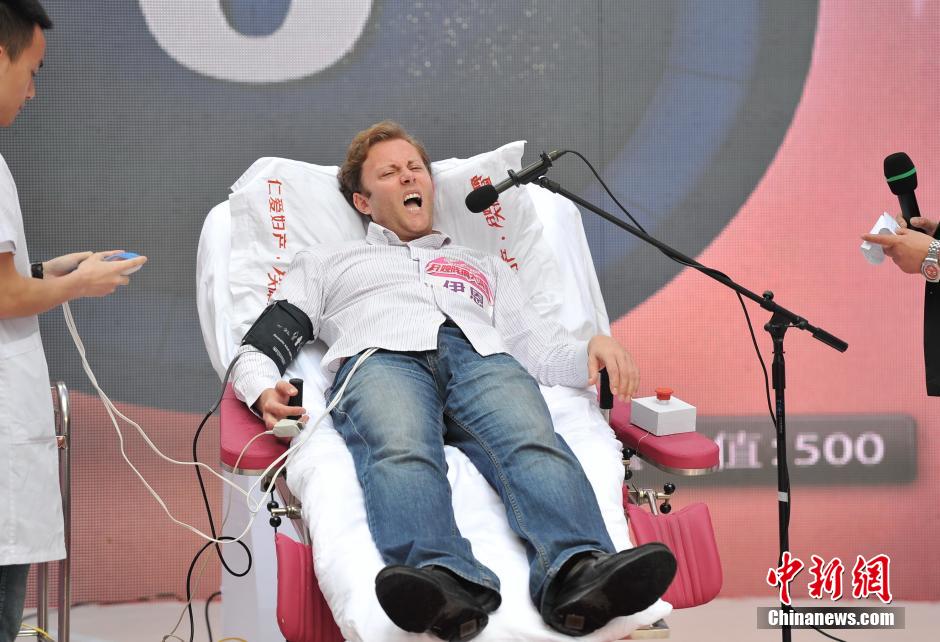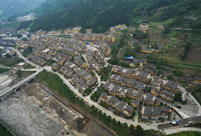 First overseas "China-standard" electric railway laid
First overseas "China-standard" electric railway laid
 College graduate launches organic agricultural cooperative in hometown
College graduate launches organic agricultural cooperative in hometown Guizhou Earthquake Emergency Rescue Team takes part in emergency exercises
Guizhou Earthquake Emergency Rescue Team takes part in emergency exercises Giant Spider-Man appears in Fuzhou
Giant Spider-Man appears in Fuzhou
 Beautiful Chinese-built roads in Africa
Beautiful Chinese-built roads in Africa Sagya Monastery in Tibet
Sagya Monastery in Tibet
 Young Chinese drive consumption
Young Chinese drive consumption
 The life of a model: Not as glamorous as it seems
The life of a model: Not as glamorous as it seems
 Hello Kitty, happy 40th birthday!
Hello Kitty, happy 40th birthday!
 The Western Qing Mausoleum
The Western Qing Mausoleum
BEIJING, May 20 -- Three Chinese volunteers on Tuesday ended an experiment that saw them live for 105 days in an enclosed capsule, eating only laboratory-grown plants and insects.
This was China's first manned test of the "Moon Palace 1," a 500-cubic meter module that is China's first and the world's third bioregenerative life support base.
The closed lab set on the campus of Beihang University is a virtual biosphere, where people can provide food for themselves by cultivating grain, vegetable, fruit and insects. The system can also produce water and fertilizers, process waste and revitalize air.
Liu Hong, chief designer of the system, which features a cabin and two plant cultivation labs, said it is a miniature version of the Earth's biosphere. It can help make it possible for astronauts to live safely in space stations without any deliveries of supplies for long periods.
Liu said the research team selected five grains, 15 varieties of vegetable, one kind of fruit as well as a yellow mealworm, which provided protein for the volunteers during the experiment.
It is hoped that the life support system can further facilitate China's manned space mission.
Last June, three Chinese astronauts spent 12 days in Tiangong-1 (Heavenly Palace 1) in the country's longest manned space mission.
China's manned space mission has entered its second decade with ambitious plans of building a permanent space station and manned lunar probe.
 A bite of Jiang Nan
A bite of Jiang Nan PLA's tough exercises
PLA's tough exercises Best photos of the week
Best photos of the week  When we are young...
When we are young... Wedding photos of world champion
Wedding photos of world champion "The Most Beautiful Chinese Land"
"The Most Beautiful Chinese Land"  Men experience pains of childbirth on Mother's Day
Men experience pains of childbirth on Mother's Day  J-11 fighters training in complex meteorological conditions
J-11 fighters training in complex meteorological conditions Six years after Wenchuan earthquake
Six years after Wenchuan earthquake  8 great movies to watch with your mom
8 great movies to watch with your mom China's most luminous celebrities
China's most luminous celebrities Newly recruited police in Hetian hold drill
Newly recruited police in Hetian hold drill  Bird-men compete flying in Hong Kong
Bird-men compete flying in Hong Kong  The 'Chinese Dad'
The 'Chinese Dad' Shanghai locals bid farewell to childhood memories
Shanghai locals bid farewell to childhood memoriesDay|Week|Month